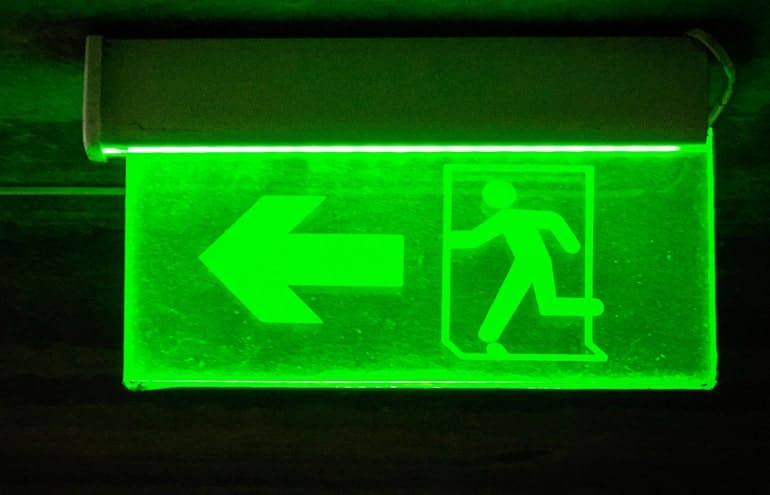Preparing for an emergency is a daunting task. When a storm is approaching, we can stock up on water and canned food items and make sure we have batteries for the flashlight. But planning for a law firm disaster requires more time and effort than a run to Costco. Here are five things to help prepare your law firm for an emergency, including a one-page disaster checklist.
1. Lock in Your “Assisting Attorney”
For solos, identifying an “assisting lawyer” or a “triage lawyer” is a key component of disaster preparedness. In the ABA 2019 Legal Tech Survey results, only 21% of solos reported having a disaster recovery plan in place.
As a solo, asking a lawyer to serve as your backup can provide peace of mind to you, your family and your clients. An assisting lawyer agrees to be available when an emergency strikes, but you can also identify an assisting lawyer to serve as a backup while you are on parental leave, medical leave or sabbatical. Choose someone with expertise in your practice area. Execute a written agreement defining the relationship and the duties they will take on for you. Authorize the lawyer in writing of your consent for them to contact your clients. Some lawyers provide this notification in their engagement letter so that the client is aware of the emergency plan from the beginning of the representation.
You may want to have a reciprocal relationship where you serve as assisting lawyer for each other.
2. Prepare a One-Page Disaster Checklist for Emergencies
In a recent Clio webinar live poll, 65% of respondents said, “when it comes to disaster and succession planning, my firm has been meaning to get around to this but hasn’t had the time.”
There are many reasons lawyers avoid these types of tasks, but a common reason is lack of time. Preparing a disaster checklist is a perfect example of not letting the perfect get in the way of good. Rather than obsessing over an extensive 25-page Disaster Recovery Preparedness Plan (that you’ll never get around to building), create a one-page checklist.
- Include your important passwords and logins for emergency entry into your key platforms.
- Provide instructions on how to access your client database and calendar system. (And make sure to keep them updated!)
- List all passwords and logins for your electronic devices.
- Include your bank account and credit card information.
- Inventory your digital assets, including vendors, logins and passwords for your website, email and social media.
- Provide your malpractice carrier information. (Keep in mind your malpractice provider may have sample disaster preparedness checklists or templates, plus articles for your review.)
This is a step you can take today. Create the list, tell key employees or family where to find it, and sleep easier tonight.
3. Get Control of Succession Planning
Many lawyers operate from the “I’ll die at my desk” plan. This is a terrible plan for you, your clients and your family. At a time when your family should be focused on their own grief, they end up trying to find phone numbers and passwords, gain access to your bank accounts, and assist clients in determining the status of their cases.
Creating a succession plan does not mean you retire today. Instead, it gives you some control over when and how you will wind down your practice. Some options for you to consider are whether you will wind down your practice, hire your successor or sell the practice. You might meet with a succession expert to start thinking about the option that works best for you.
4. Document and Test Your Communication Plan
In a time of disaster, regular communication channels are often comprised. Taking the example of a natural disaster, you need to talk through your plan in advance with your staff. Determine whether the office will be closed and how the team will be notified, review the court’s contingency plan for hearing cases, and share expected outcomes with your clients.
If your office became virtual during the pandemic, you have already had to deal with moving to a work-from-home environment and chances are you are now paperless or at least have less paper than in the past.
Now is the time to document your plan and improve on it annually. A Raleigh law firm suffered fire damage in their leased office space before the pandemic. Because they had done simulations of emergency scenarios where employees and lawyers could not get into their office but still had to maintain communication with one another and serve their clients, they were well-suited to survive the disaster and the recovery process.
Determine what works and what does not. Review and update the plan annually based on the results of your most recent test or based on an event such as an office relocation.
5. Check Essential Tech for the Unexpected
Technology is fundamental to surviving the unexpected, such as a pandemic. Here are key components to include in your tech plan:
Hardware, Phone Systems, Internet
- Computers and mobile devices
- Scanner
- VoIP services, call forwarding, virtual receptionists
- High-speed internet
- Backup system
Software Solutions
- Practice management, document management, calendar/document systems
- Marketing and client relationship management (CRM) tools
- Collaboration tools
- Microsoft 365 (with Teams)
- Google Workspace
- Videoconferencing software
- E-signature tools
- Secure client portal
- Credit card processing and payment plans
- Email campaign software
No one wants to think about an emergency.
But you can use the lessons learned from surviving the pandemic to make it easier to survive the next disaster. And remember, once you have that disaster checklist in place, you’ll sleep easier.
Photo by Isravel Raj on Unsplash
You Might Also Like:
“Client Portals: A Must-Have Service for Today’s Law Firms” by Jim Calloway
“Where Do I Sign? Navigating Signatures in a Digital Age” by Nicole Clark
“Accidents Happen: What Precautionary Measures Do You Have in Place for Your Practice?” by Ruth Carter
“Law Firm for Sale: Boosting the Value of Your Practice” by Ryan McPherson
“Lawyer Retirement: Planning for Life After Law During a Pandemic” by Camille Stell
Subscribe to Attorney at Work
Get really good ideas every day for your law practice: Subscribe to the Daily Dispatch (it’s free). Follow us on Twitter @attnyatwork.

















